Form Ghana, a plantation forestry company specialising in restoring natural biodiversity in deforested forestry reserves in Ghana, is known for its unique approach to developing its employees and empowering fringe communities.
"Form Ghana was established in 2007, and from the beginning we have invested in building a sustainable company championing environmental and social responsibilities delivered by capable people working in a culture of safety and accountability", explains the CEO, Willem Fourie.
"Through our staff development, mentoring and succession planning programmes, we provide opportunities for career development," he says.
"I am proud to announce the following changes in Form Ghana's Management Team:
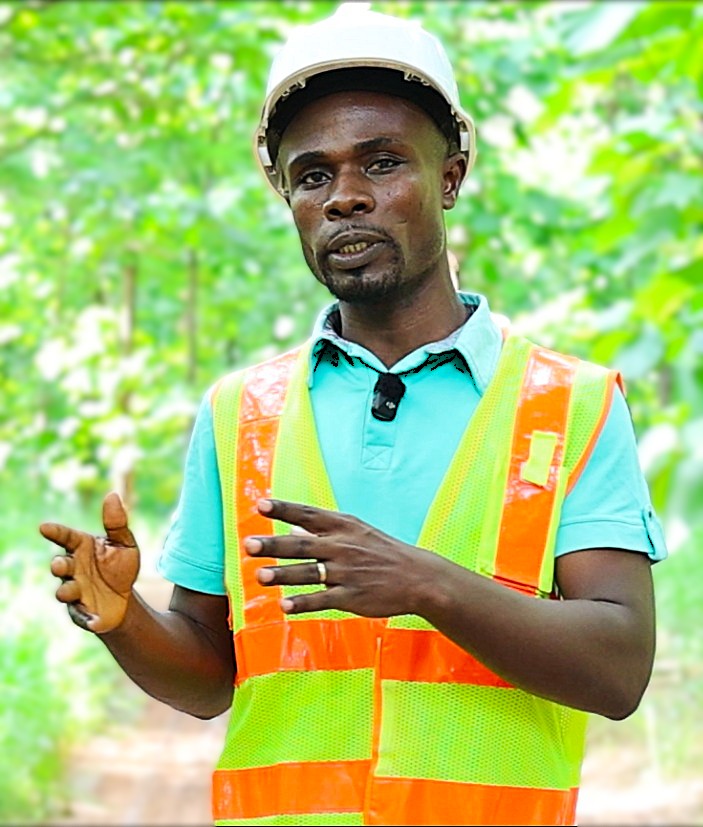
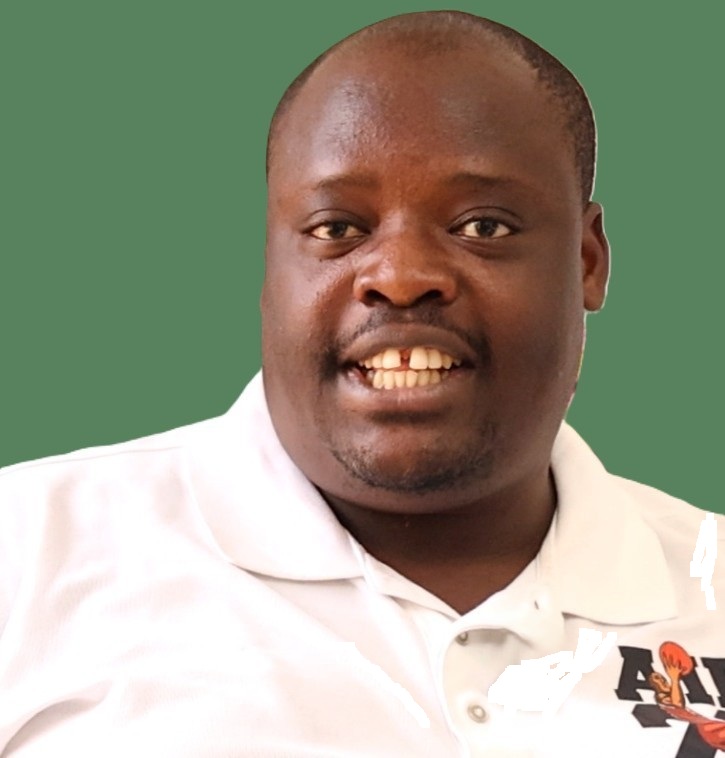
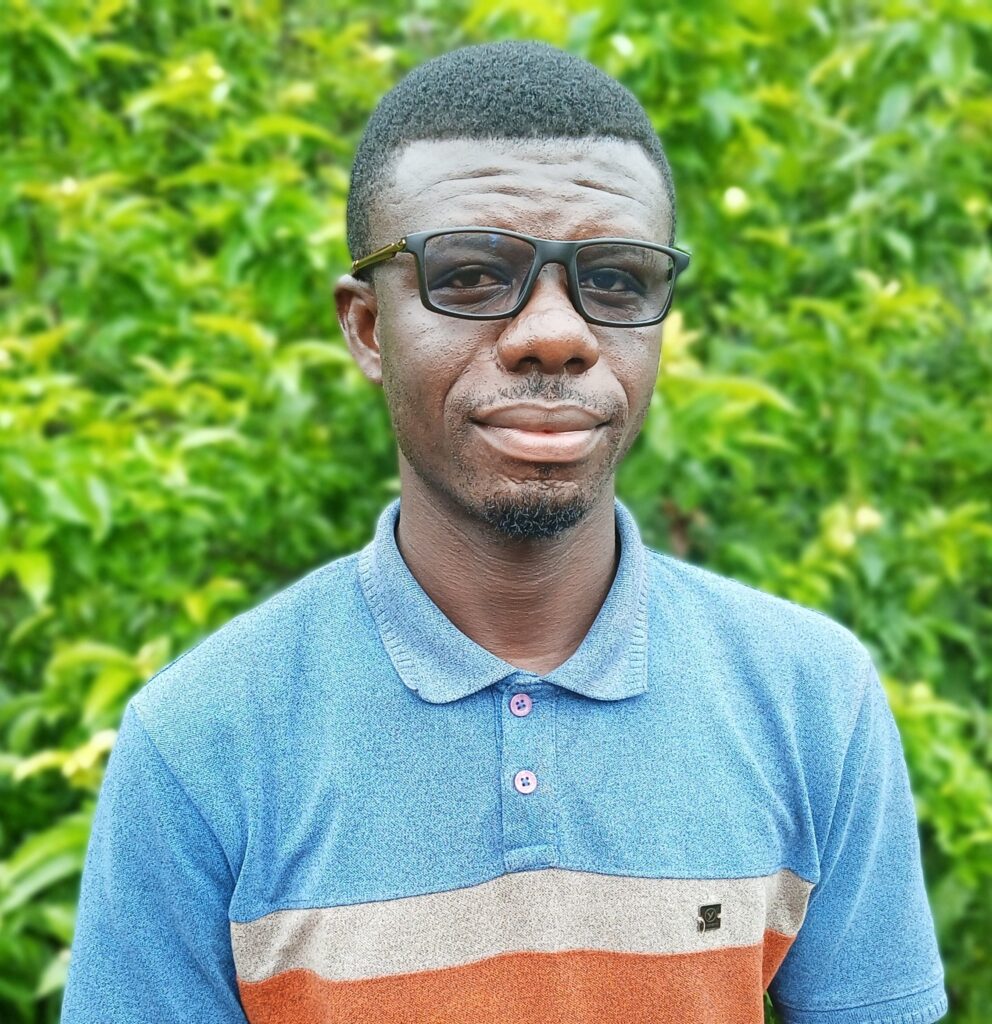
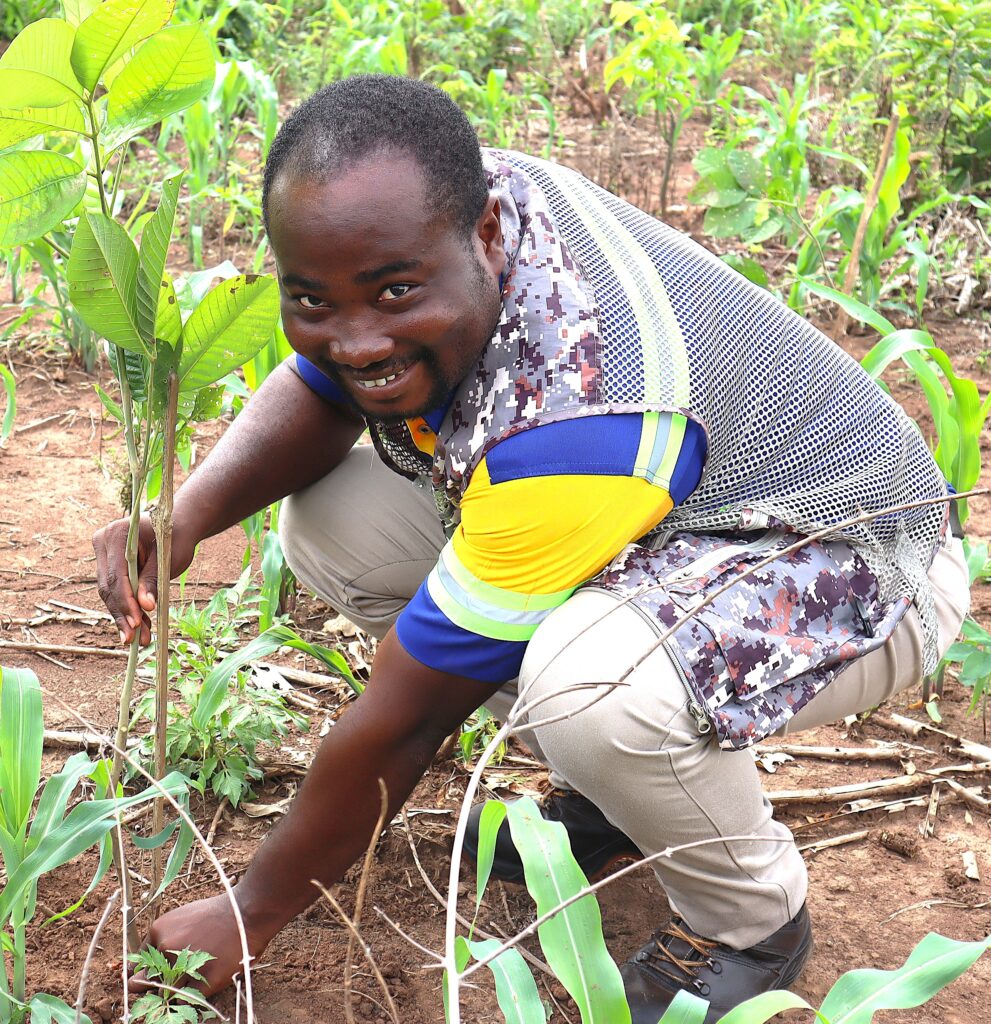
Matthew, Bismark and Alex studied forestry at Kwame Nkrumah University of Science and Technology in Kumasi, Ghana. In 2013, they joined Form Ghana's Management Trainee Programme. They took the opportunity to work hard and learn as much as possible about the company's silviculture, forestry, and harvesting operations.
Their diligence, positive attitudes, and hands-on leadership paid off, and as their operational, management, and people skills developed, they were rewarded with promotions to supervisory and managerial positions.
Bismark summed up their sentiments, "The sustainability of the company is essential, which means everyone must contribute to working safely, productively, and efficiently. Form Ghana has offered so many opportunities for me to grow in my career. I have ideas that could contribute to the growth of the company and look forward to developing myself further so that I can make a difference".
Alexander, a qualified accountant with experience in the media, hospitality and banking industries, answered a Form Ghana advert in 2017. He began as a Senior Site Accountant, and as his knowledge and understanding of the company's activities grew, so did his enthusiasm for forestry.
In March 2025, he was promoted to the position of Senior Forest Accountant. "Forestry is challenging and very different to the other industries I have worked in," he comments.
"Form Ghana is a successful company; however, I believe that it is still developing. It is destined to be very significant in this country and will stand out due to the way we conduct our work. In my new role as Commercial Manager, I aim to expand my knowledge and insights, contributing to the company's mission and vision".
Congratulating the new appointees, Willem Fourie said, "These senior appointments show that our management and personal development system, accompanied by a dynamic mentoring programme, is forming a company with an enviable depth of capacity, insight, experience and an incredible future".
Introducing Form Ghana’s Board Member, Prof Joseph R Cobbinah.
Prof Cobbinah is a distinguished and erudite Board Member who has held leadership and advisory roles in Ghana’s forestry sector since 1978. An entomologist by profession, he is currently based at the Department of Climate Change and Integrated Natural Resources Management at the CSIR Graduate College of Science and Technology in Kumasi, Ghana.
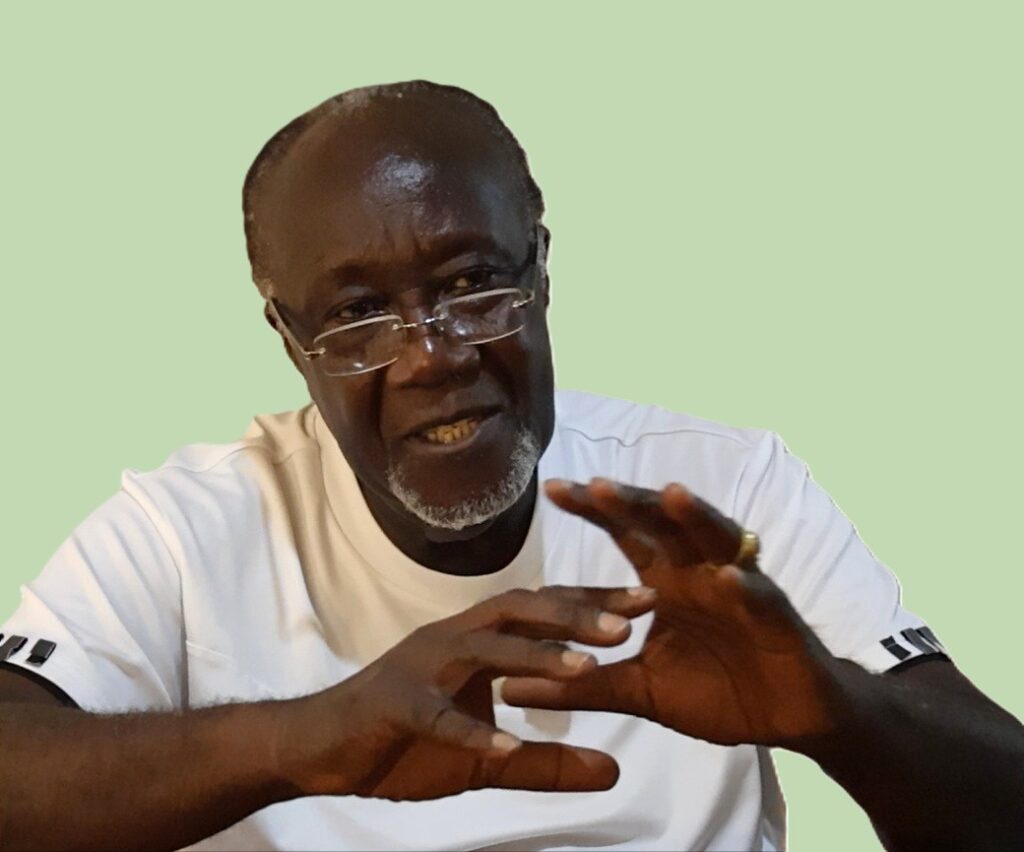
In Prof Cobbinah’s words:
I am proud and delighted to have been part of Form Ghana from the beginning.
So much has happened, and we have so much to celebrate, including:
Prof Cobbinah concluded by saying “I know that Form Ghana is and will always be the trailblazer in West Africa’s plantation forestry industry!”.
Mariam Awuni, Form Ghana's Human Resources Manager, writes:
Form Ghana recently held successful training programmes for the Berekum and Adumadan plantations Ladies' Club members, focusing on team building, communication, conflict resolution and achieving common goals.
The aim of the training, led by Joycelyn Adii, the Bono Regional Gender Director, was to equip the women of Form Ghana with essential skills to thrive in a male-dominated industry.
Madam Joycelyn emphasised the importance of women supporting one another to strengthen the team's overall productivity and contribute to the company's goals and their own livelihood activities. She highlighted the need for women to build themselves up, unite, and lift each other, noting that collective strength is vital in overcoming challenges in the forestry sector.
During the sessions, she underscored the role of effective communication in fostering trust and preventing misinformation. She encouraged participants to follow the company's established procedures for addressing concerns and grievances, ensuring clarity and accountability. Conflict, she explained, is a natural part of group dynamics. Still, how it is managed determines whether it strengthens or weakens the team. She urged the group to use Form Ghana's conflict resolution mechanisms to address issues constructively.
The facilitator also prompted discussions on how the ladies could work together toward a common goal. The participants recognised that resolving internal conflicts and embracing diversity were essential to achieving unity and progress.
Madam Joycelyn advised the club to align its constitution with the company's vision and mission, ensuring that its efforts contribute to retaining and encouraging more women in the workforce. The training ended on a high note, with participants thanking management for its support. They requested assistance in organising similar training and coaching sessions to encourage more women to join the club and work towards the company's long-term success as "Women of Form Ghana".
Visitors to Form Ghana’s harvesting operations are accustomed to hearing the unmistakable sound of chainsaw operators working in our teak plantations. They are in for a pleasant surprise when the harvesting team clad in highly visible safety gear and carrying their industrial chainsaws emerge from the forest at lunchtime.
Regina Gbedaa, Patience Oppong, and Helina Dansowaa are members of Form Ghana’s all-female chainsaw squad, working alongside their male colleagues.
At Form Ghana, equality and diversity are among our core values. We take pride in offering equal opportunities to our existing employees and local community members. One of these operators is a current casual employee who seized the chance to learn and excel in a new role. Another discovered the opportunity through a radio announcement, while the third heard about it at a local community information centre.
Our skills development provider, CMO, sent Allan Ogram, their chainsaw specialist and instructor, to train the women. They completed two weeks of intensive training in tree characteristics, felling, debranching and crosscutting and received a Certificate of Competence.
“I was impressed by their attitudes, strength and willingness to learn a skill traditionally reserved for men. They had no problems in handling the saws during a full day’s work”, says Allan. “Their achievement proves something I always emphasise in my training courses – the ability to safely and productively handle a chainsaw is all about using the appropriate technique for the tree and its location”.
The newly skilled operators say they accepted the challenge to be pioneers in a male-dominated profession because Form Ghana believed they would succeed.
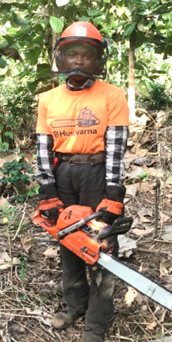
PATIENCE OPPONG
My name is Patience Oppong. I am a native of Berekum and a junior high school dropout.
I joined Form Ghana in November 2022 as a casual fire support worker. I volunteered to attend the chainsaw operator programme, and in May 2023, I was appointed as a permanent Chainsaw Operator.
I am proud to be an employee of Form Ghana because it has provided me with a job and the technical skills and abilities to operate a chainsaw.
By employing me, Form Ghana has helped me send my children to school and buy a plot of land and a sewing machine for my sister.
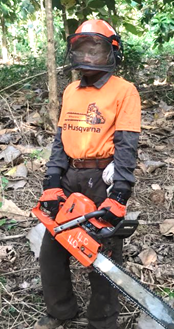
REGINA GBEDAA
My name is Regina Gbedaa, and I am a senior high school graduate. I heard on the radio that Form Ghana was looking for chain saw operators. My application was accepted, and I joined the company in May 2023.
I worked hard during the training programme and learnt how to operate the chainsaw and the importance of achieving my daily target.
Joining Form Ghana was my best decision because it has helped me rent accommodation and send my siblings to school.
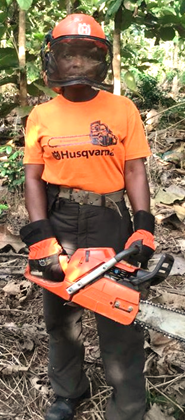
HELINA DANSOWAA
I am Helina Dansowaa, and I was born and raised in Berekum. After junior high school, I worked as a seamstress when I heard at the community information centre that Form Ghana was looking for women interested in learning how to use a chainsaw.
Form Ghana and Allan Ogram taught me various chainsaw operating techniques, like how to hold the chainsaw and cut a tree to fall in the right direction. I know how to debranch trees and crosscut logs to specified sizes.
I want to thank Form Ghana for employing me and creating opportunities for me and other community members.
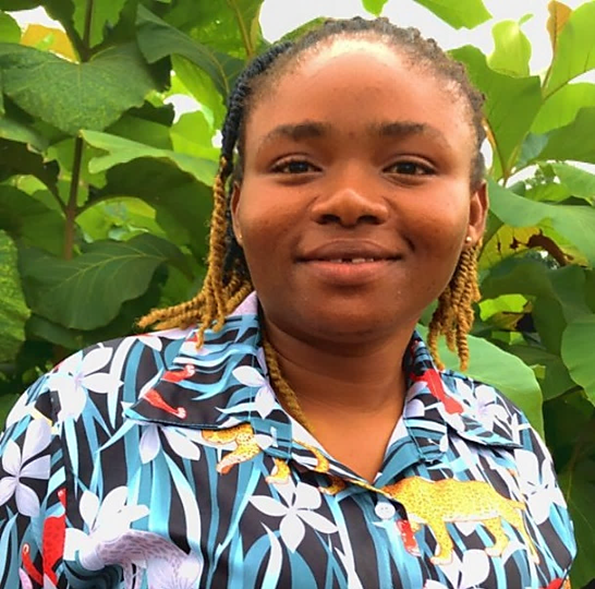
My name is Faustina Agyeiwaa. I am a graduate of KNUST and joined Form Ghana in June 2023 as a Management Trainee.
My experience has been worthwhile. Form Ghana is well organised and has an excellent record in social, environmental, and economic achievements. It is an honour to be part of a company involved in reforestation and restoration. The structured Management Trainee Programme has given me a great opportunity to learn on the job and build my communication, analytical thinking, and problem-solving skills. Also, I have gained practical knowledge of silviculture and harvesting and helped senior managers and officers in various plantation management activities.
I have grown personally and professionally and am confident that the practical knowledge and experiences gained so far will help me build a career at Form Ghana.
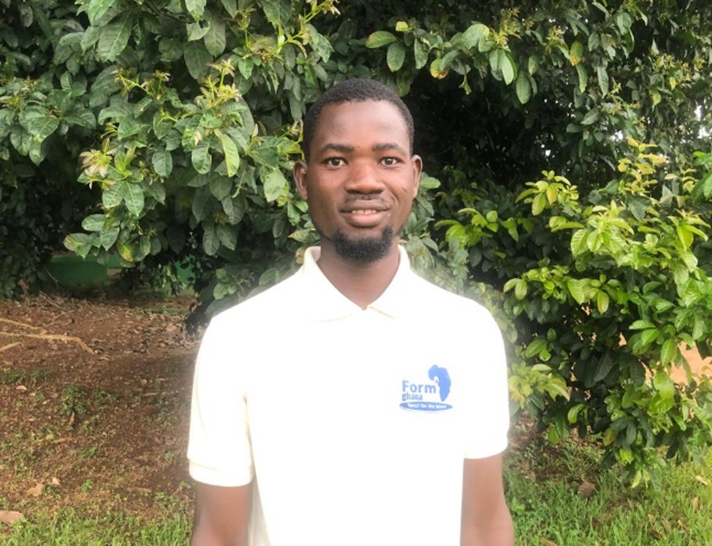
I am Adam Osman, a graduate of the UDS. Since joining Form Ghana in January 2023 as a Management Trainee, I have received training and worked in many departments.
I have assisted Plantation Supervisors and Technical Officers in all their duties. They and the managers taught me how to plan, organise teams and monitor plantation work. They encouraged me to identify trends, evaluate outputs and make improvement recommendations.
Working with Form Ghana has been an exciting and wonderful experience. The MTP has helped me understand the theories I learned in class by giving me contextual knowledge, practical skills and experience in plantation and harvesting management operations.
I see this as a challenge to keep working hard, advance professionally, and improve my interpersonal relationships, communication, and problem-solving skills. I appreciate Form Ghana for giving me this opportunity since it will significantly increase my long-term goal of becoming a forest or natural resources manager.
There's no better way to secure the future of a country and company than by attracting, nurturing and developing young and dynamic leaders. In this newsletter, we introduce Form Ghana’s Management Trainee Programme (MTP), which develops the company’s leaders to ensure our continuity and sustainability.
The MTP is sought-after by Ghanaian graduates wanting to work for a forward-thinking company in the highly rewarding fields of environmental stewardship, community engagement, reforestation and growing local economies. At the same time, Form Ghana provides the tools and opportunities for career development and personal growth.
“Young talent brings fresh ideas and innovation, contributing to Form Ghana’s adaptability and growth. Recruiting and selecting young people ensures that there is a pool of future leaders well-prepared and aligned with the company's values and objectives”, explains Mariam Awuni, Form Ghana’s Human Resources Manager.
“The MTP was introduced in 2010 to minimise disruptions in our operations by encouraging experienced supervisors and managers to pass on their knowledge, expertise, and institutional memory while remaining open to new ideas”, she says.
The Form Ghana MTP is an immersive experience that takes candidates through all levels of the organisation. Mariam explains that young graduates rotate through various departments and work side-by-side with teams in the nurseries and infield, supervisors, officers, foresters, and managers.

“This hands-on exposure gives potential leaders a rounded understanding of Form Ghana’s operations and what it means to be a sustainable forestry company. They are encouraged to take ownership of projects to develop their soft skills and understand leadership responsibilities. This helps them gain confidence and develop their decision-making skills”, Mariam explains.
The MTP period is six continuous months. When they have completed the programme, trainees can leave or join Form Ghana. They can build a career in the company by starting as a Management Assistant and rising through the ranks as Supervisors, Officers, Foresters, and Managers when there is a vacancy.
“While we are proud of the graduates who choose to continue their journey with Form Ghana, we understand that career paths are diverse. Many of our former students have ventured into other professional avenues, and we couldn't be happier with the feedback we receive. They tell us the experience and learnings gained during the MTP has given them the tools to secure other jobs and build successful careers”.
Mariam says, “The impact of the programme is far-reaching. Most of our management team are graduates who are contributing to Form Ghana’s sustainability and thereby playing a significant role in shaping the future of Ghana”.
"The safety, health and well-being of Form Ghana's employees and contractors are not negotiable," says Willem Fourie, the CEO. The company's Health and Safety Policy forms a significant component of employee induction, and safe work practices are underscored by Toolbox Talks every morning and a stringent skills training and refresher course system.
Form Ghana's management team proactively identifies health risks beyond on-the-job safety that could harm the company's operations and cause reputational harm to their employees and their families.
Food hygiene interventions
Food and water contamination could make employees ill, causing absenteeism, and, in extreme cases, could be fatal. Recently, the District Environmental Health Officers and Form Ghana's health team jointly inspected the food preparation premises of food vendors who sell and handle food on-site.
Form Ghana's Occupational Health and Safety Officer, Site Nurses and Health and Safety Assistants educated the food handlers and sellers about hygiene, safety and ways to control and prevent food contamination and cross infections.
Personal hygiene programme
As part of the preventative measures, the chemical sprayers, manual weeding teams, monitoring teams, engineering workshop staff, stores, janitors, and management staff were trained on personal hygiene infield and at the mustering site. This education aimed to address ill-health cases linked to hygiene as a risk factor.
Hand tools safety
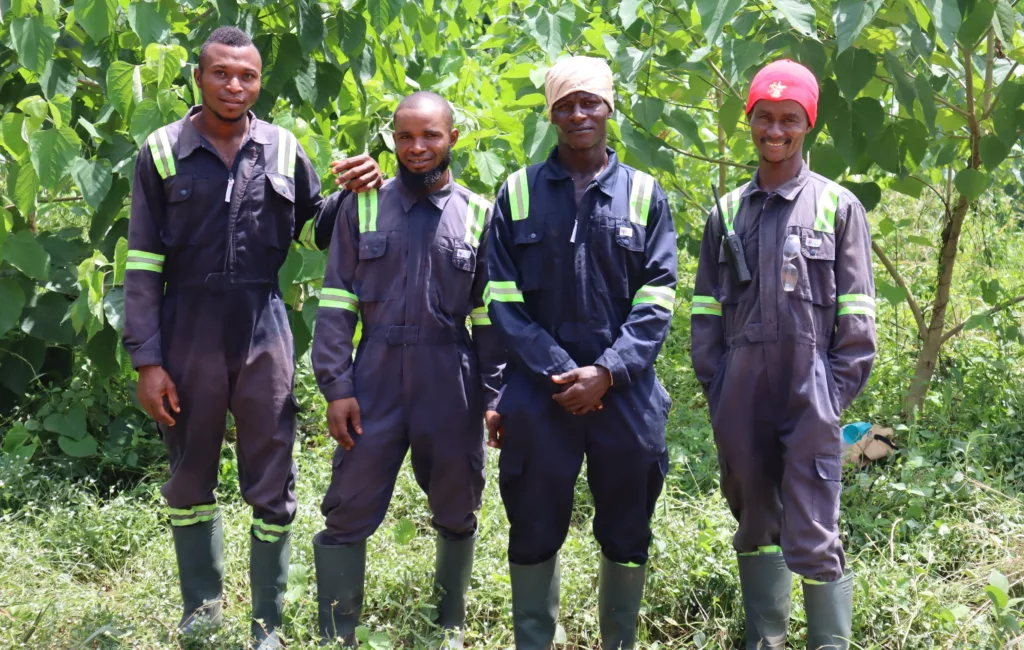
The weeding team was trained to maintain their hand tools and ergonomics and safe techniques for slashing saplings/ shrubs and other problematic weeds.
Vehicle maintenance training
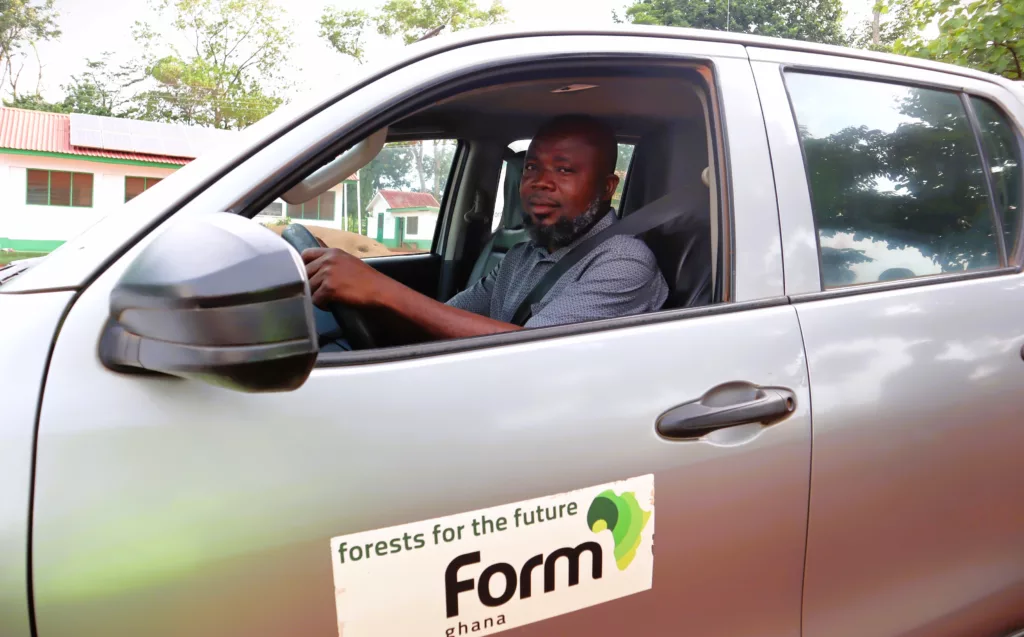
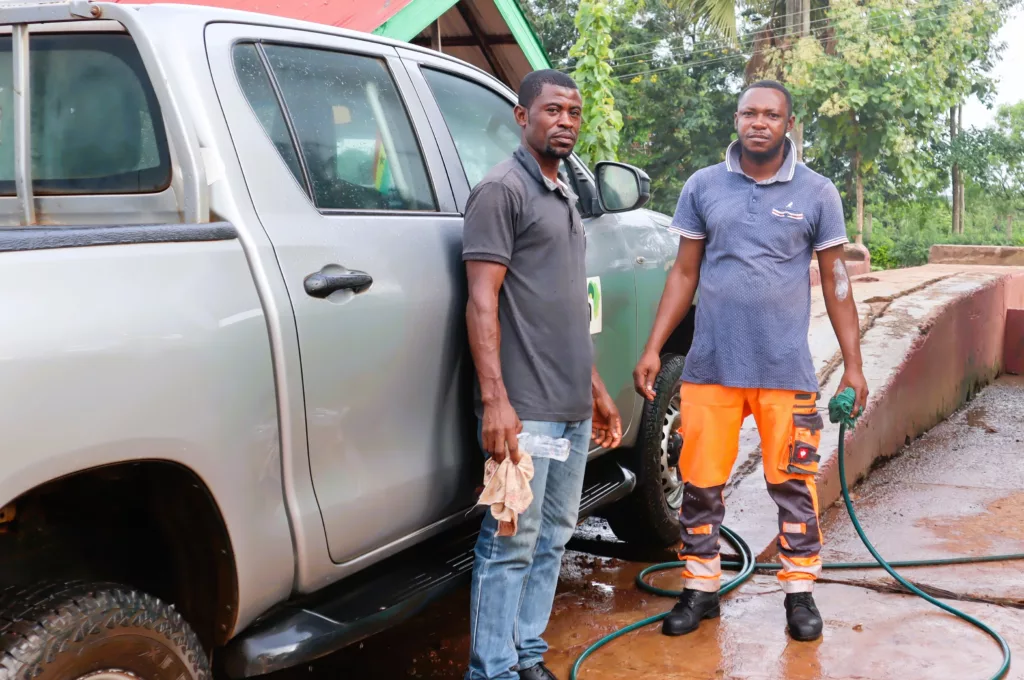
Form Ghana's drivers are exposed to extreme hazards in a country with poorly maintained roads, dangerous road users, cyclists, motorcycles, animals and pedestrians. They regularly attend training in risk assessment and defensive driving techniques in various conditions. The drivers were recently trained on the importance of tyre inspections and safety when changing a tyre.
Form Ghana recently appointed two new professional Site Nurses to assist in educating employees about health and safety at work and home, safe work practices, HIV/Aids, malaria, and conduct first aid training. They are both registered with the Ghana Registered Nurses and Midwives Association.
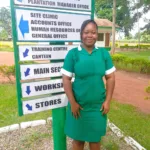
Freda O Kwarteng is the Site Nurse at Akumadan. She holds a Diploma in General Nursing and gained extensive experience at St John of God Hospital in Bono Region.
"I am impressed by Form Ghana's attention to their employee’s health and well-being. Employees feel happy coming to the clinic", Freda remarks.
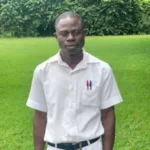
Edward A. Atia is based at Berekum. He has a first-class BSc degree in nursing and is a registered nursing practitioner. He brings experience from the Korle-Bu Teaching Hospital, Pantang Psychiatric Hospital in Greater Accra, and the Wa Municipal Hospital in the Upper-West Region.
"I delight in educating employees on health issues, for example, food and personal hygiene as preventative means of controlling ill-health", Edward says.
Form Ghana is responsible to its stakeholders to identify and solve all complaints and grievances appropriately, timely and fairly. Where possible, we focus on dialogue to address and resolve grievances.
The comprehensive Complaint Response Mechanism (CRM) demonstrates that the company has taken the appropriate steps to address the issue, protect the complainant where possible, try to find a win-win solution, and has been fair, impartial and ethically professional in our approach.
Internal Complaints
Form Ghana implements a comprehensive set of employment and employee-related policies, procedures and Safe Operating Practices (SOPs) that protect their and the company's rights regarding work, working conditions and relationships with colleagues. Broadly, the CRM:
External Complaints
External complaints can have a variety of origins. Complainants can roughly be categorised as follows: intercropping farmers, members of surrounding communities, pastoralists residing near the project area, Government bodies (local, regional and national), service providers, NGOs, and others.
Stakeholders can express their complaints at stakeholder meetings, community meetings, intercropper/outgrower meetings, focus group discussions and one-on-one sessions. If the complaint is not solved in the forum, the complaint is escalated to the Environment and Social (E&S) Manager, who implements the formal CRM procedure.
There are several methods for external stakeholders to inform Form Ghana about their dissatisfaction. It includes:
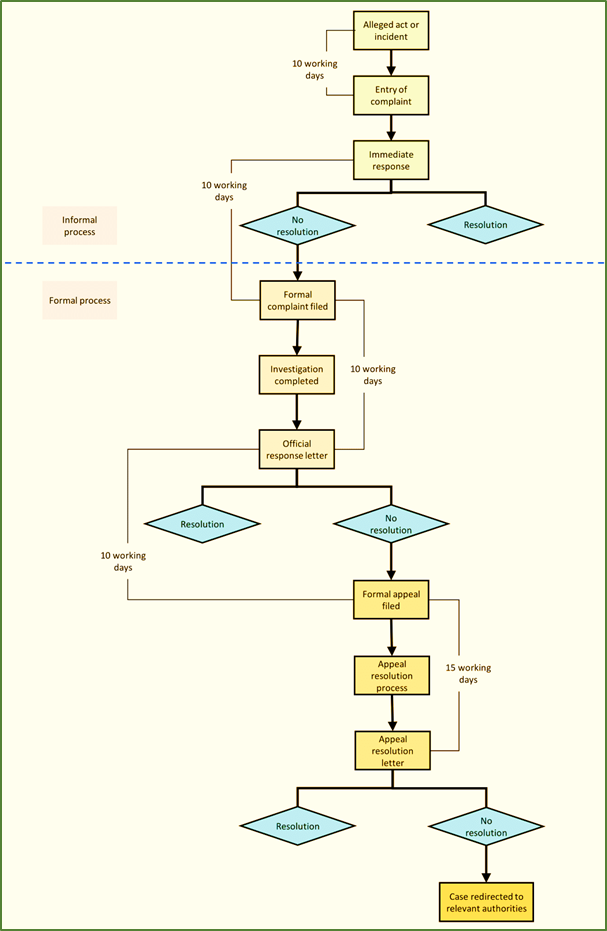
Businesses do not operate in isolation. They exist within a complex web of relationships and interactions with various stakeholders, each with a personal stake in the company's activities. For Form Ghana, stakeholder engagement is not just a corporate responsibility but a fundamental aspect of our approach to responsible and sustainable forestry management.
Our stakeholders are as diverse as the ecosystems we manage. They encompass government departments, our Board, private investors and donors, staff, traditional landowners, fringe communities, service providers, labour unions, farmers, intercroppers, certification organisations and environmental NGOs. Each group plays a unique role in shaping our operations and, consequently, our long-term success.
However, the communities and landowners surrounding our forests hold a special place in our stakeholder engagement strategy. They are on the front lines, experiencing the impacts of our activities daily.
Open communication
One of the critical pillars of our stakeholder engagement approach is establishing open and transparent lines of communication. To achieve this, we follow accepted protocols to organise regular stakeholder meetings that are carefully planned and communicated well in advance. These meetings are held at churches and town halls accessible to everyone. Transport is often arranged to assist groups to participate.
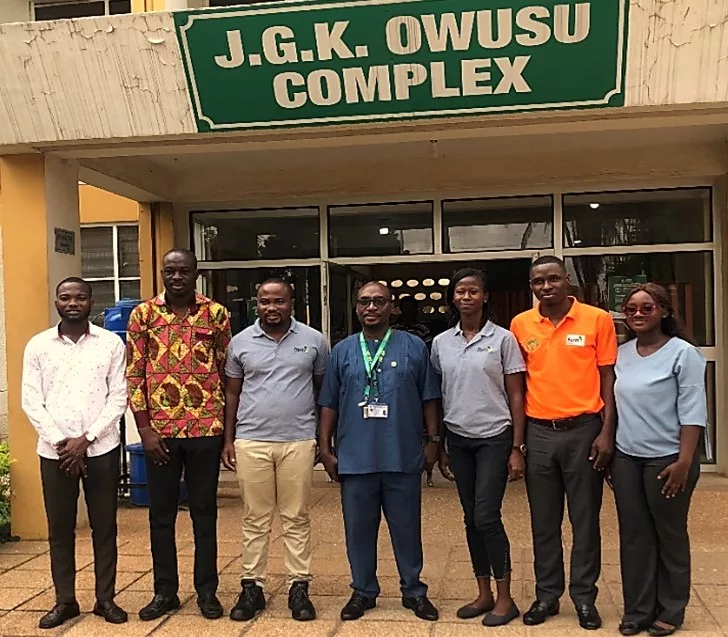
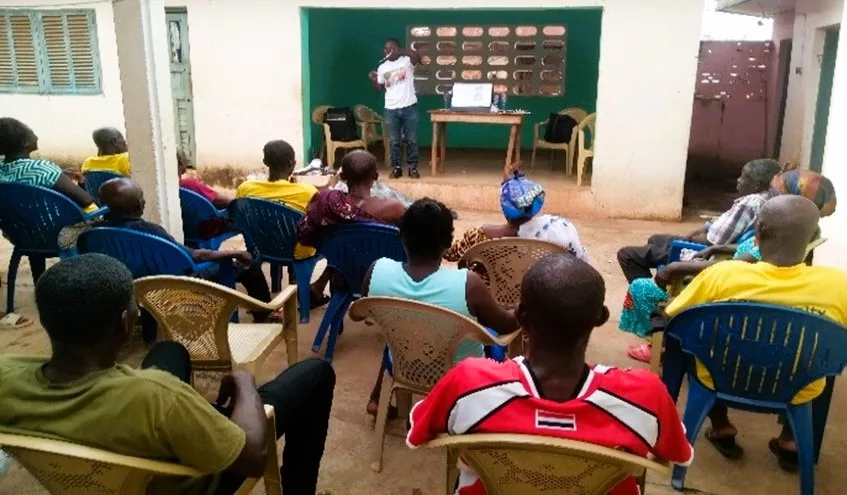
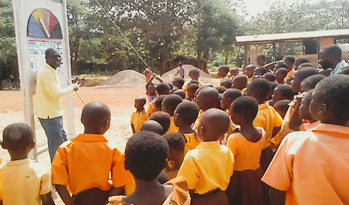
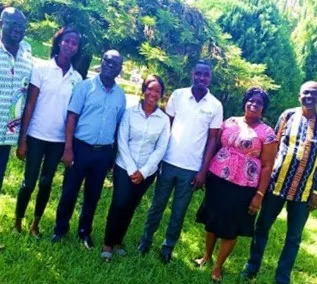
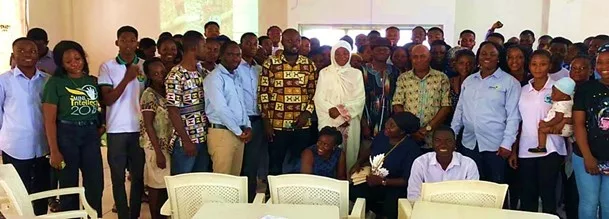
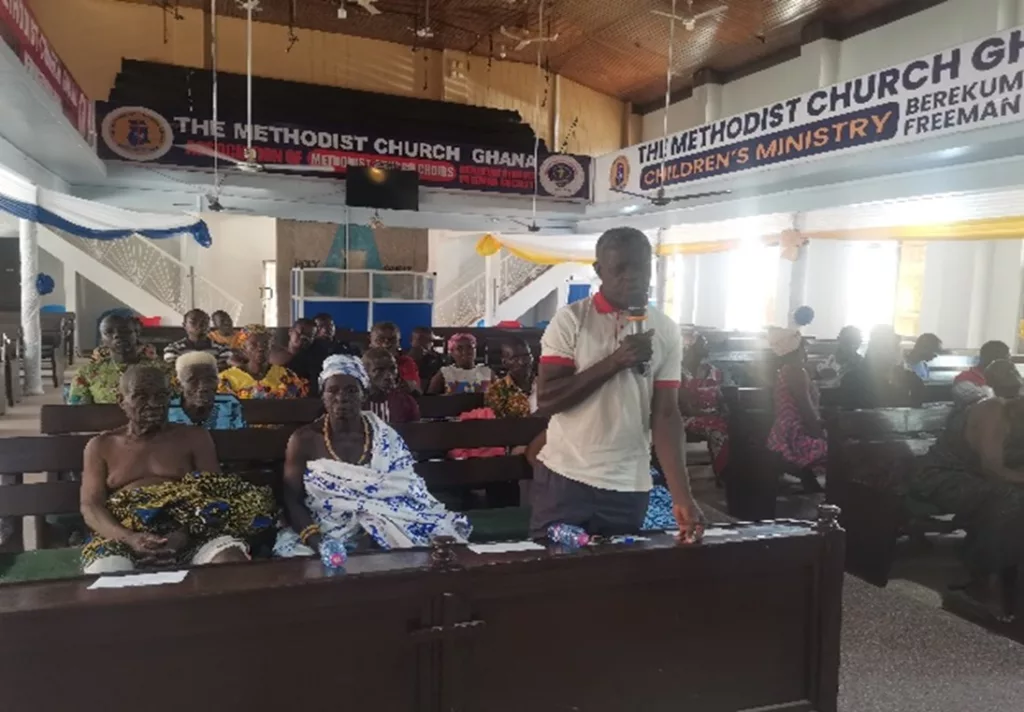
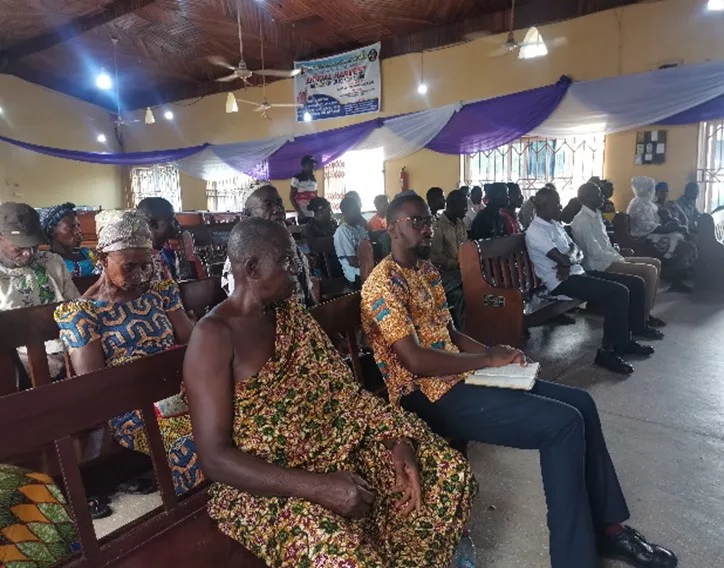
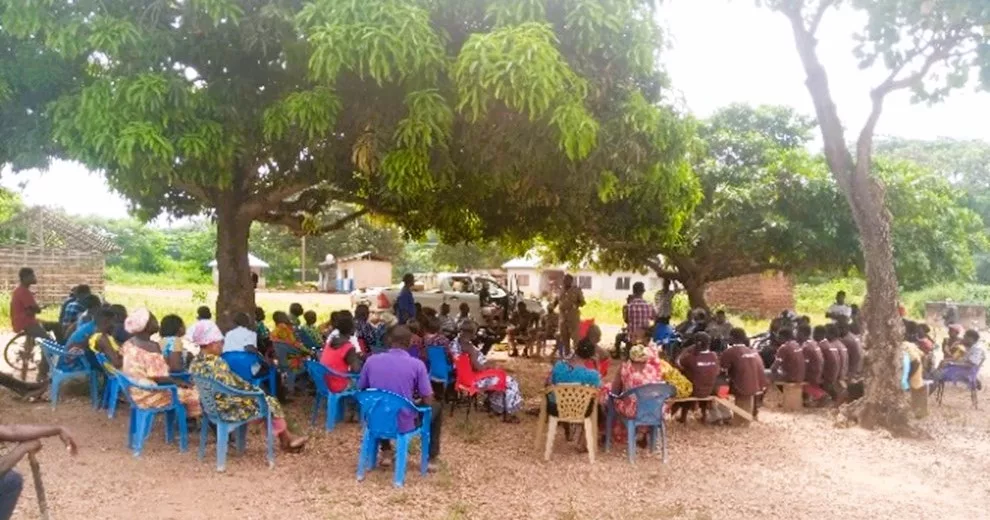
The agenda includes feedback on matters arising from the previous meeting and new topics that may have emerged since the last gathering. We encourage stakeholders to voice their concerns about issues within our scope, ask questions, and share their views on our operations. We also use the opportunity to identify community projects for which funds are available.
These discussions are essential for building mutual trust and ensuring we remain accountable to our stakeholders. The minutes of these meetings are available at our offices, ensuring transparency and accessibility for all interested parties.
Complaints mechanism
We understand that complaints and grievances may arise from time to time. Our stakeholder engagements encourage individuals or groups to express their grievances and complaints during our meetings. If, for any reason, a resolution cannot be reached during the meeting, we request that these concerns be put in writing. It formalises the complaint and activates Form Ghana's formal Complaint Response Mechanism (CRM), ensuring a structured and timely resolution process.
Sensitisation sessions
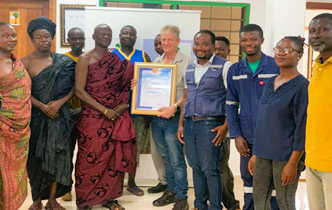
In addition to our regular stakeholder meetings, we recognise the importance of keeping our stakeholders well-informed about our objectives, projects, and operations.
To achieve this, Form Ghana conducts regular sensitisation meetings. "Sensitisation" means making people "sensitive" about an issue. This is the core of our awareness-raising process.
These sessions educate our stakeholders about our activities and provide a platform for addressing their expectations and concerns. Examples of the topics covered include fire prevention, illegal activities, health and safety, best agronomic practices, work opportunities and offering a platform for suggestions and registering complaints.
Beyond corporate responsibility
Stakeholder engagement is not just a corporate responsibility; it is a fundamental aspect of our approach to sustainable forestry management and creates a stronger, more resilient foundation for our operations.
As we move forward, we remain dedicated to strengthening our stakeholder relationships and ensuring that our forestry practices benefit the environment and the communities we serve.
Do you want to join our team?